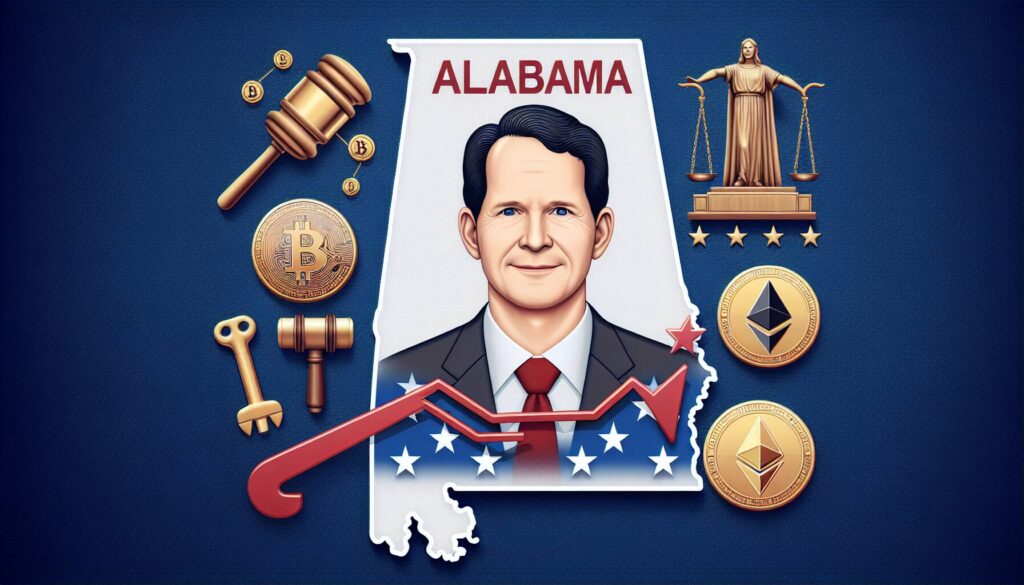A new wave of economic uncertainty is sweeping through the cryptocurrency landscape, triggered by U.S. President Donald Trump’s announcement of 25% tariffs on steel and aluminum imports. This decision not only rattles traditional markets but also casts a shadow over major cryptocurrencies, including Ethereum’s ether (ETH). Traders are treading carefully as they anticipate a potential ripple effect from these tariffs, raising concerns about increased inflation and its impact on risk assets like cryptocurrencies.
In recent trading, cryptocurrencies exhibited little movement, with leaders such as Bitcoin and Ethereum only showing minor gains of less than 1%. However, BNB Chain’s BNB experienced a notable decline of 4.5%, marking a significant reversal from its recent rally. This steady state comes on the heels of a broader market context, where economic tensions can lead to shifts in investor sentiment. As market watchers have noted, such volatility can provoke a shift away from cryptocurrency investments as traders seek refuge in safer assets.
“At the risk of sounding like a broken record, but a lack of L1 catalysts and narrative leadership will likely continue to weigh on Ethereum in the foreseeable future,”
These sentiments highlight a troubling year for ether, which has seen its value decline significantly, contrasting sharply with Bitcoin’s resilience. Analysts suggest that the Bitcoin-to-Ethereum ratio has fallen to levels reminiscent of 2021, indicating a prevailing preference for Bitcoin amid fears surrounding Ethereum’s instability. The ramifications for related tokens, such as the popular memecoin dogecoin (DOGE) and various Ethereum-based DeFi tokens, are also becoming apparent, signaling a potential downturn as these assets often mirror Ethereum’s performance.
Market experts at QCP Capital foresee ongoing fluctuations in the crypto sphere as Trump’s trade intentions unfold. With a market acutely responsive to political signals, the fear of further trade wars could aggravate an already volatile environment. As inflation expectations rise, the outlook for cryptocurrencies remains tenuous, particularly for Ethereum, which has struggled to sustain momentum with a lack of driving innovations or narratives. With uncertainties looming, investors are left weighing the potential consequences of these tariffs and the overall market volatility stemming from executive decisions.

Impact of U.S. Tariffs on Ethereum and the Crypto Market
The recent announcement of tariffs by President Donald Trump is creating ripples in the financial markets, particularly affecting cryptocurrencies such as Ethereum’s ether (ETH). The following key points highlight the potential consequences and implications for investors and market watchers:
- Introduction of 25% Tariffs:
- The U.S. is imposing new tariffs on steel and aluminum imports, increasing economic uncertainty.
- This could escalate trade wars, potentially increasing market volatility.
- Cautious Market Sentiment:
- Market watchers are adopting a cautious stance due to a lack of short-term catalysts.
- The crypto market’s reaction is closely tied to overall stock market trends, with current stability shown in major U.S. indices.
- Bitcoin vs. Ethereum Trends:
- Ethereum is experiencing significant downward pressure, with a notable drop in its value compared to Bitcoin.
- The Bitcoin-Ethereum ratio has dropped, indicating a shift in investor preference towards BTC over ETH.
- Impact on Related Assets:
- A downturn in ETH could negatively affect related assets, including memecoins like dogecoin (DOGE) and Ethereum-based DeFi tokens.
- This sets a precedent where the performance of ETH directly influences the broader crypto ecosystem.
- Increased Inflation Expectations:
- Rising inflation may lead to limited interest rate cuts by the Federal Reserve, further impacting risk assets.
- Investors are likely to shift focus away from high-risk investments, including cryptocurrencies.
- Market Volatility Predictions:
- Traders anticipate significant fluctuations in crypto markets influenced by continued political statements and economic factors.
- Increased volatility could spur further bearish sentiment on Ethereum and other cryptocurrencies.
Quote from Augustine Fan, SignalPlus:
“The rise of BTC vs everything else is the most evident in comparison with ETH, which is seeing record short-interest and FUD…”
The Ripple Effect of Tariffs on Ethereum and the Crypto Market Landscape
The recent announcement from President Donald Trump regarding a new round of tariffs symbolizes a growing wave of economic uncertainty that could significantly impact the crypto market, particularly Ethereum (ETH). As market watchers remain cautious, there are notable comparative advantages and disadvantages to examine, especially when juxtaposing Ethereum with Bitcoin and other cryptocurrencies.
Competitive Advantages: While Bitcoin continues to demonstrate resilience, with minor gains in light of the tumultuous market, Ethereum struggles beneath the weight of burgeoning short interest and fading investor sentiment. Bitcoin’s ability to weather these economic storms stems from a shift in preference among traders who are increasingly flocking to what they perceive as the “safest” option amidst instability. Observers often cite the BTC-ETH ratio, which recently has shown a marked preference for Bitcoin, highlighting a strategy shift among investors focused on stability and potential upside.
Disadvantages: The implications of Trump’s tariffs may lead to a heightened risk aversion among traders, compelling them to pivot away from cryptocurrencies like Ethereum towards more stable investments. Such a move could ultimately exacerbate ETH’s downward trend, especially considering it has experienced a 23% decline year-to-date compared to Bitcoin’s modest 2.5% gain. Analysts are voicing concerns that without significant Layer 1 developments and a compelling narrative, Ethereum will continue to face uphill battles against its close competitors.
This evolving landscape poses a dual-edged sword for market participants: institutional investors may find protective havens in Bitcoin, potentially forecasting greater institutional adoption and a tightening grip on ETH. Conversely, volatility brought on by tariffs can ripple through the crypto sector, impacting correlated assets such as memecoin darling Dogecoin (DOGE) and Ethereum-based DeFi tokens. Traders relying on short opportunities could face significant challenges as Ethereum’s tumultuous market behavior deepens this year.
On one hand, traders who prioritize risk-managed strategies might benefit from a diversified approach, counterbalancing potential losses in ETH with positions in Bitcoin or stablecoins. However, for those heavily invested in Ethereum, the current market dynamics, coupled with inflation expectations and speculative sentiments, could create a precarious environment. Such tension may lead to a tighter grip on trading strategies and a comprehensive reassessment of crypto investments moving forward.

















